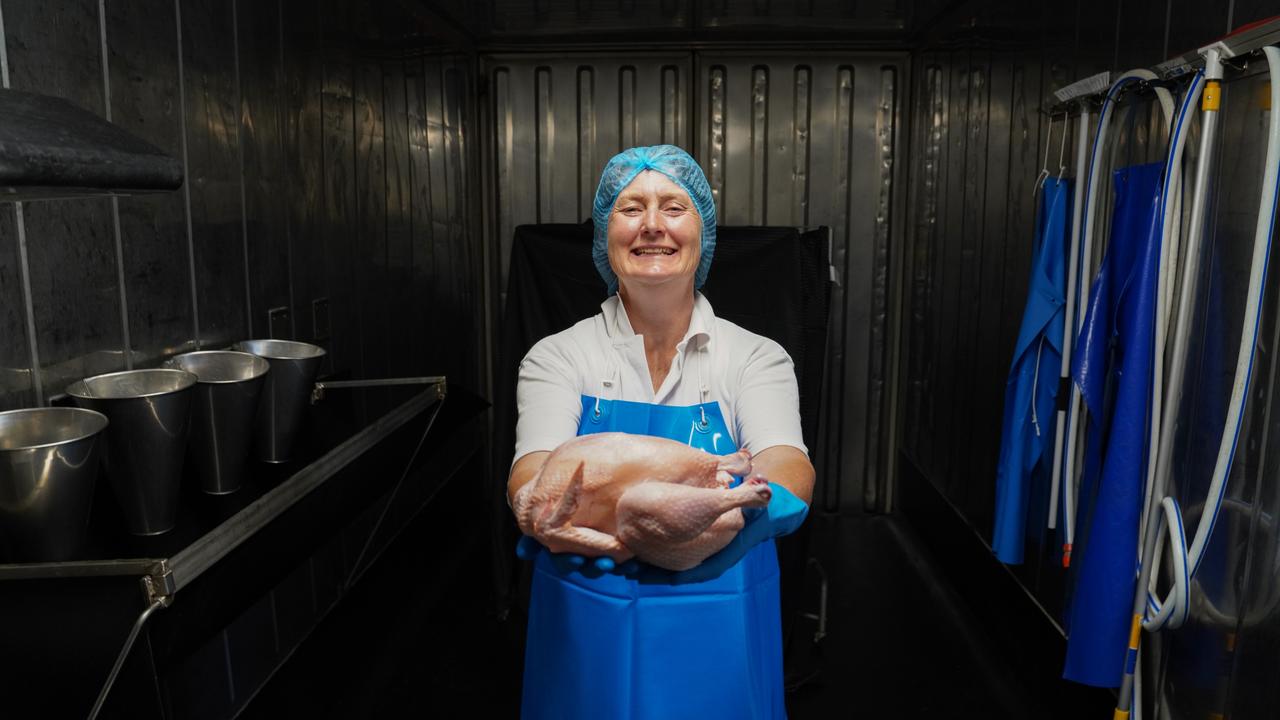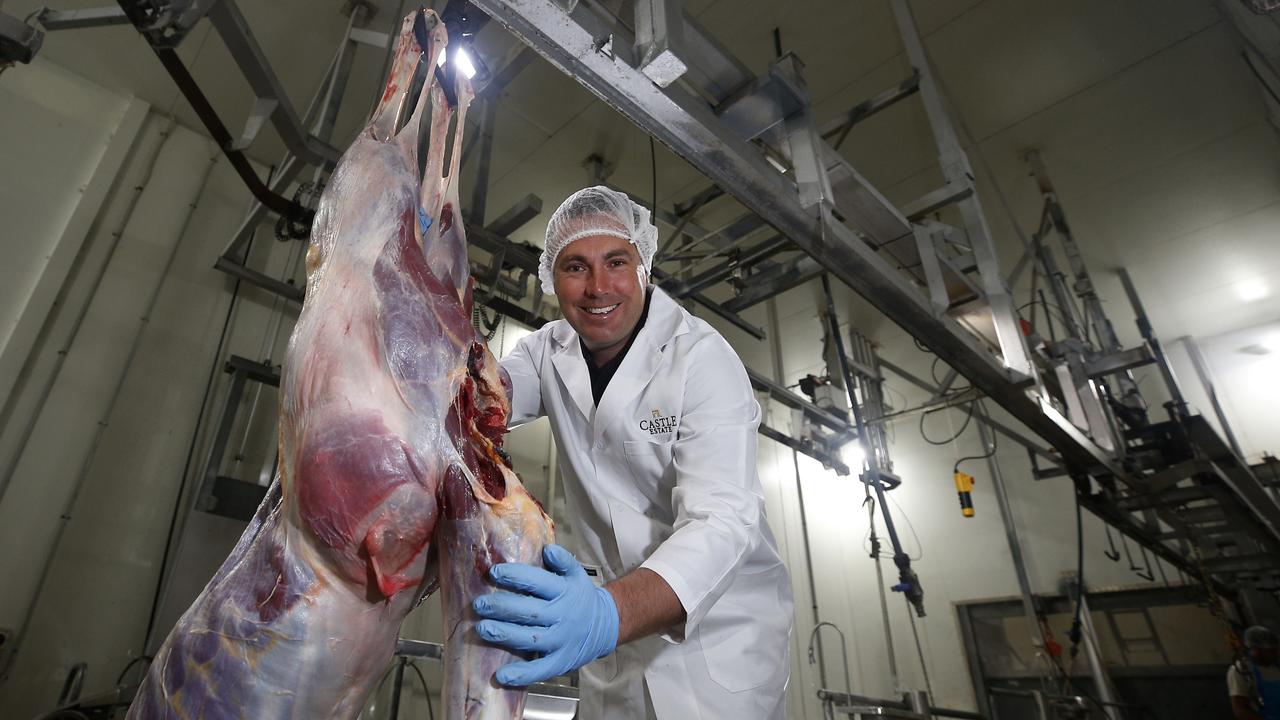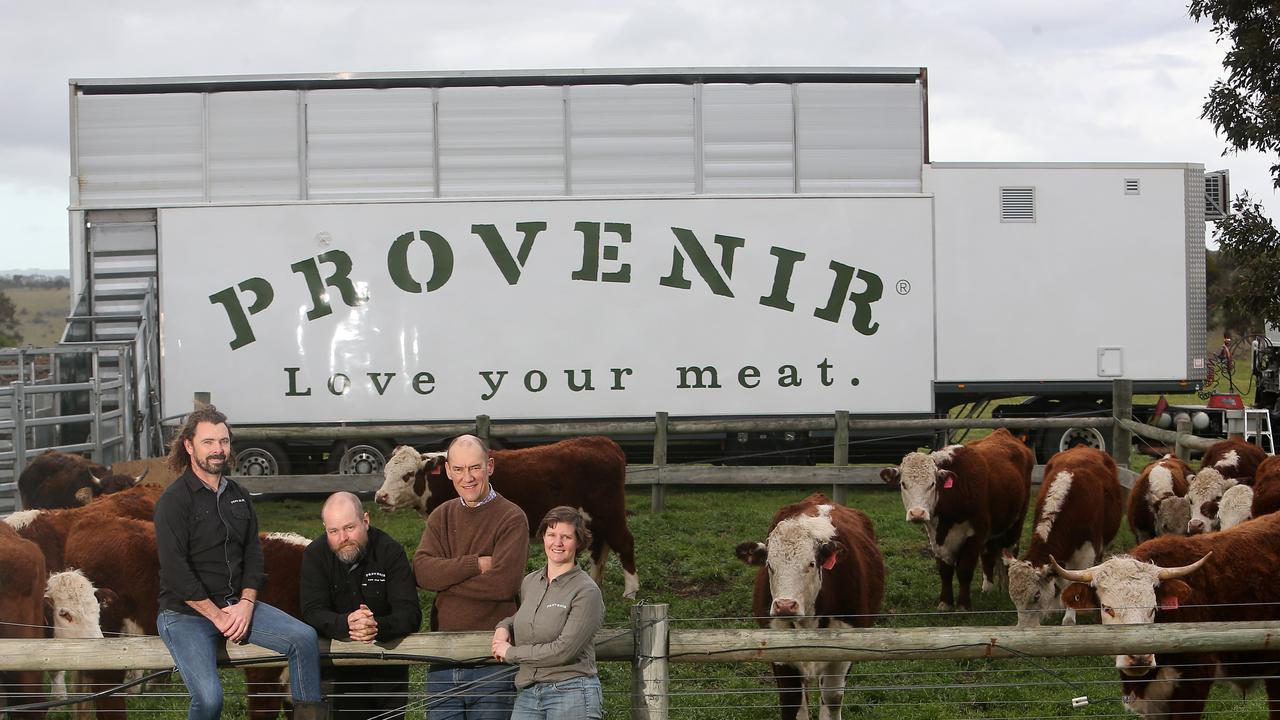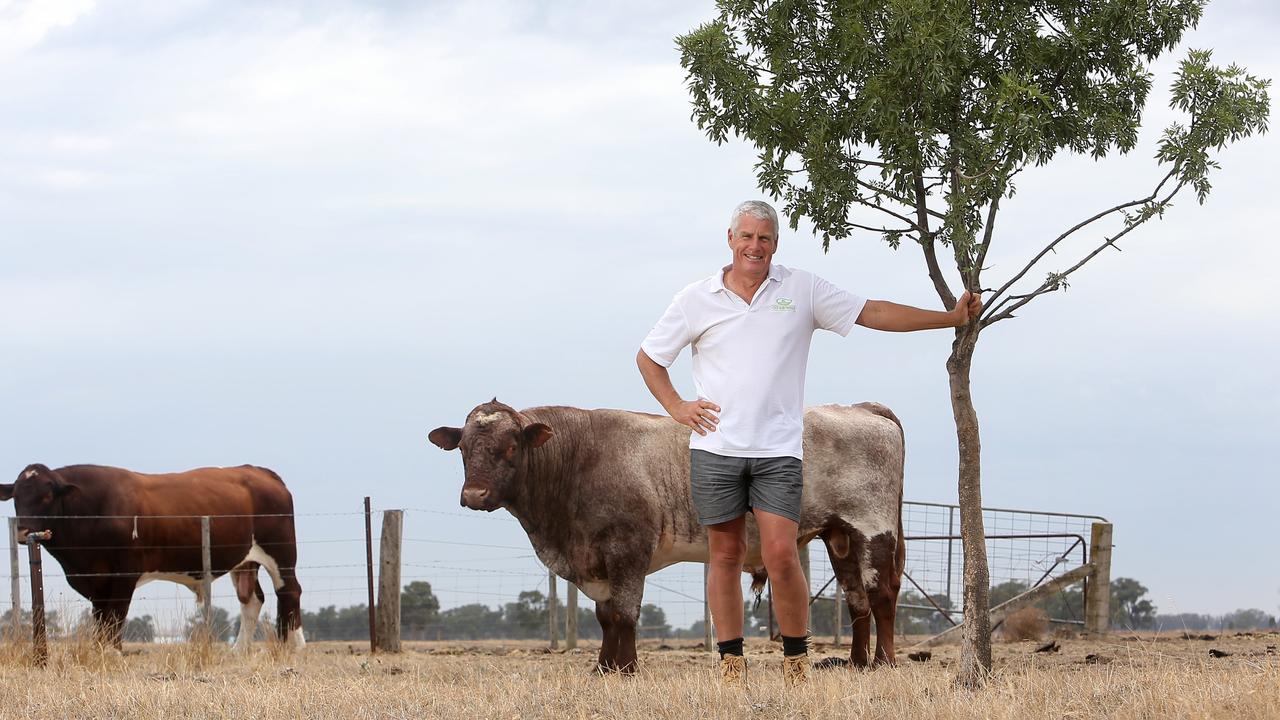On-farm abattoirs: Humpy Creek, Provenir, Castle Estate, Deutscher’s Turkeys
These producers have cut through the red tape to build on-farm abattoirs, intent on controlling their supply chain at every step.
A small-scale chicken farm at Digby is home to Victoria’s newest licensed poultry abattoir.
Kate and Craig Mibus gained PrimeSafe’s stamp of approval last month, and have started processing birds weekly in their on-farm micro-abattoir west of Hamilton.
“We’re very excited about it,” Kate said. “The ability to have my chooks sitting in the paddock enjoying the sun, to a little while later being sitting in my cool room. It makes me happy. I know they haven’t suffered.
“Butchering them yourself, you can also have a really good understanding of their health.”


Kate and Craig run Humpy Creek Farm Produce, raising free-range chickens on nine hectares of their 190ha ‘Rifle Downs’ property, selling directly to restaurants and households.
Initially, the couple will process just their own birds, aiming for 400 a month, but may eventually expand to other farmers’ poultry.
“I just have to look into the disease risk,” Kate said.
The abattoir was built inside refrigerated shipping containers, and took six years to complete.
“It has cost us a lot of money, because we have made a lot of mistakes,” Kate said. “If we built the abattoir now from scratch, I think we would do it within a budget of $200,000.
“Over time it will hopefully pay for itself, because ultimately that is why we are doing it.”
Kate said the process – which included land works, installing a water tank, fitting out the containers and licensing – had been difficult because PrimeSafe regulations were “geared towards very large abattoirs”, but she received help and support from Dadswells Bridge turkey farmer Daryl Deutscher, who is licenced to process poultry on his farm, and rural financial counsellor Shane Annett.
Daryl said: “I am very passionate about small people doing niche products processing their own, so your animals and birds don’t have to travel hundreds of kilometres.”
Kate and Craig run their birds on pasture, using mobile hutches to give the flock shelter at night, and in extreme weather.


Kate had previously used an abattoir in Melbourne, transporting live chickens 350km every week, but the gruelling late-night trips took a toll.
“The stress of bringing chickens such a long way was immense … and it was unsustainable,” she said.
Kate said her chickens also tasted better when they hadn’t been subjected to stress.
“Craig has been an on-farm butcher, and has butchered our own meat,” she said. “The difference between on-farm low-stress butchery and meat that we would buy was extreme. I know that I’m sending a premium product off to a restaurant.”
Access to slaughter services has long been a concern for small-scale producers, who want to minimise live transport but have few choices when it comes to processors that offer small-lot kill services.
In addition to Kate and Craig, the following Victorian farmers have also built, or are in the process of building, on-farm abattoirs to shore up their supply chains, increase animal welfare and better control the quality of their product.
DEUTSCHER’S TURKEY FARM

Daryl Deutscher runs a free-range turkey farm at Dadswells Bridge on a property he bought in 1982. Passionate about animal welfare and producing the best quality product, Daryl built an abattoir on the property, where he now processes his free-range turkeys, and offers services to local poultry and rabbit producers.
The 71-year-old said it had been difficult to secure reliable labour in the past year, and is planning to scale back his operation after Christmas.
There are at least two other turkey farms in Victoria that also run on-site processing facilities.
Daryl has recently listed his Dadswells Bridge property for sale.
CASTLE ESTATE

Run by the Castle family, Castle Estate is a vertically integrated beef farming business at Camperdown, in southwest Victoria, which includes an on-farm abattoir and boning room built in 2014, originally trading as Koallah Farm abattoir.
The abattoir is licensed to process beef, sheep, pigs, goats, deer, alpacas, llamas and buffalo, offering services for other farmers.
PROVENIR

Provenir operates Australia’s first mobile abattoir, which gained its licence to operate in NSW in June 2019, followed by a Victorian licence in July 2020.
Founded in 2017 by Bannockburn cattle farmer Chris Balazs, vet Phil Larwill, chef Christopher Howe, marketing expert Jayne Newgreen and Townsville barrister Merissa Martinez, the company works on an acquisition model, processing cattle on farms to sell directly to restaurants, retailers and consumers under its own brand.
The company’s main aim is to remove the need for live animal transport, giving farmers complete control over their stock to the point of slaughter, and providing customers with premium quality meat that hasn’t been subjected to stress.
TARANAKI FARM

Woodend farmer Ben Falloon, of Taranaki Farm, ran a crowd-funding campaign in 2019 to finance construction of an on-farm poultry micro-abattoir on his property.
He runs free-range chooks for eggs, free-range meat chickens and free-range pigs, selling meat directly to consumers and supplying eggs to restaurants and retailers.
EDEN FARM PRODUCE

The Baker family of Numurkah has planning approval to build an on-farm abattoir on their property, where they run Eden Farm Produce, raising cattle and growing vegetables using biodynamic principles.
They sell their meat and vegies through their own local produce shop, and online, with demand ramping up in the past few years.
Gary Baker said the next step in the abattoir project was obtaining funding, hopefully through a grant, to kickstart building works.
JONAI FARMS AND MEATSMITHS

Free-range pig producer Tammi Jonas, of Jonai Farms, currently processes her family’s pigs at Diamond Valley abattoir.
Carcasses are returned to the family farm, where her team butchers then sells the meat at the farmgate and through a direct-to-consumer subscription model.
The news of JBS Australia’s recent acquisition of Rivalea Holdings, which owns the Diamond Valley abattoir, was the catalyst for the Jonas family to begin construction of an on-farm micro-abattoir, aiming to process their own and other local producers’ pigs.




